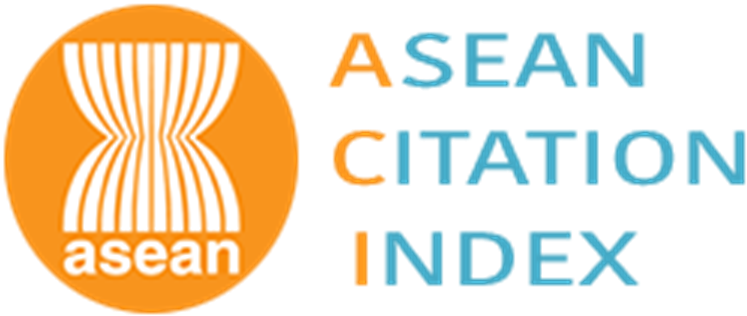การพัฒนารูปแบบศักยภาพของผู้จัดการโครงการในอุตสาหกรรมก่อสร้างอาคารสูงในยุคเศรษฐกิจดิจิทัล
Competency Framework Development for High-Rise Construction Project Managers in the Digital Economy
Abstract
การวิจัยเรื่องนี้มีวัตถุประสงค์ เพื่อศึกษาองค์ประกอบ พัฒนารูปแบบ และจัดทำคู่มือแนวทางการพัฒนาศักยภาพของผู้จัดการโครงการในอุตสาหกรรมก่อสร้างอาคารสูงในยุคเศรษฐกิจดิจิทัล ใช้เทคนิคเดลฟาย (Delphi) โดยผู้ให้ข้อมูลหลัก คือ กลุ่มผู้เชี่ยวชาญ จำนวน 26 คน คัดเลือกแบบเจาะจงเลือก ประกอบด้วย ผู้เชี่ยวชาญจากสถานประกอบการภาคอุตสาหกรรม ผู้เชี่ยวชาญที่เป็นนักวิชาการด้านวิศวกรรมโยธา เครื่องมือที่ใช้ในการวิจัยประกอบด้วย แบบสอบถามปลายเปิดสำหรับการสัมภาษณ์ผู้เชี่ยวชาญ ในรอบที่ 1 และแบบสอบถามปลายปิด รอบที่ 2 และ 3 โดยได้มีการประชุมสนทนากลุ่ม (Focus Group) กับผู้ทรงคุณวุฒิ จำนวน 16 คน เพื่อประเมินรูปแบบ และผู้เชี่ยวชาญ จำนวน 5 คน ประเมินคู่มือ สถิติวิเคราะห์
ที่ใช้ประกอบด้วย ค่าความถี่ ค่าร้อยละ ค่ามัธยฐาน (Median) และค่าพิสัยระหว่างควลไทล์ (IQR) ผลการวิจัยพบว่า รูปแบบศักยภาพของผู้จัดการโครงการในอุตสาหกรรมก่อสร้างอาคารสูงในยุคเศรษฐกิจดิจิทัล ประกอบด้วย 5 องค์ประกอบหลัก และ 24 องค์ประกอบย่อย ได้แก่ 1) ด้านการวางแผน ประกอบด้วย 5 องค์ประกอบย่อย คือ 1.1) การวางแผนการดำเนินงาน 1.2) การวางแผนด้านเทคโนโลยีดิจิทัล 1.3) การวางแผนด้านความเสี่ยงและความปลอดภัย 1.4) การวางแผนการใช้ทรัพยากรดำเนินงาน และ 1.5 การวางแผนด้านการเงินและงบประมาณ 2) ด้านการจัดองค์การ ประกอบด้วย 4 องค์ประกอบย่อย คือ 2.1) การกำหนดโครงสร้างหน่วยงาน 2.2) การกำหนดหน้าที่ความรับผิดชอบ 2.3) การกำหนดระเบียบข้อบังคับ และ 2.4) การบริหารคนและบริหารงาน 3) ด้านการสั่งการ ประกอบด้วย 5 องค์ประกอบย่อย คือ 3.1) การมอบหมายงาน 3.2) การตัดสินใจ 3.3) การพัฒนาระบบการทำงาน 3.4) การใช้เทคโนโลยีและนวัตกรรมก่อสร้าง และ 3.5) การสร้างขวัญและกำลังใจ 4) ด้านการประสานงาน ประกอบด้วย 5 องค์ประกอบย่อย คือ 4.1) การกำหนดการวางแผนร่วมกัน 4.2) การติดต่อประสานงานภายในและภายนอก 4.3) การสื่อสารด้วยเทคโนโลยีสารสนเทศ 4.4) การประชุมชี้แจงข้อมูล และ 4.5) การให้คำปรึกษาการทำงาน และ 5) ด้านการควบคุม ประกอบด้วย 5 องค์ประกอบย่อย คือ 5.1) การกำหนดระบบการติดตามงาน 5.2) การบันทึกและรายงานข้อมูล 5.3) การควบคุมความปลอดภัยและสภาพแวดล้อมการทำงาน 5.4) การควบคุมภายในและการบริหารความเสี่ยง และ 5.5) การบริหารสัญญา โดยมีผลการประเมินรูปแบบจากการจัดประชุมสนทนากลุ่มย่อย โดยผู้ทรงคุณวุฒิ 16 คน มีมติเป็นเอกฉันท์ เห็นว่ารูปแบบการพัฒนาศักยภาพของผู้จัดการโครงการในอุตสาหกรรมก่อสร้างอาคารสูงในยุคเศรษฐกิจดิจิทัล มีความเหมาะสม และคู่มือแนวทางการพัฒนาศักยภาพของผู้จัดการโครงการในอุตสาหกรรมก่อสร้างอาคารสูงในยุคเศรษฐกิจดิจิทัล ผู้เชี่ยวชาญทั้ง 5 ท่าน มีความคิดเห็นสอดคล้องกันทุกคนโดยเห็นว่าคู่มือมีความเหมาะสมสามารถนำไปประยุกต์ใช้ได้จริง
The purposes of this study are to examine major components to develop a competency framework for project managers supervising high-rise projects in the digital economy and to create a guidance manual to provide guidelines for competency development of the target audience. The Delphi technique was used in the study. The collective opinion was derived from a panel of 26 experts selected through purposive sampling. They were industry professionals and academic specialists with expertise in civil engineering. Research instruments included open-ended interview questions for the first-round interview along with closed-ended interview questions for the second and third interviews. A focus group was carried out with 16 specialist participants for the model assessment whereas 5 experts were responsible for evaluating the manual. Statistical methods for data analysis were frequency, percentage, median and interquartile range (IQR). The research found that the competency model for the high-rise construction project managers consisted of 5 main components and 24 sub-components, shown as follows: (1) Planning, consisting of 5 sub-components: 1.1) Operational planning, 1.2) Digital planning, 1.3) Risk assessment and security planning, 1.4) Operational resource planning, and 1.5) Financial and budget planning; (2) Organizational competence, with 4 sub-components: 2.1) Determination of organizational structures, 2.2) determining the responsibilities and requirements of a role, 2.3) Establishing workplace rules and regulations, and 2.4) Personnel and work management skills; (3) Commanding, constituting 5 sub-components: 3.1) Task assignment and task direction, 3.2) Decision making, 3.3) Improving work processes, 3.4) Use of construction technology and innovation, and 3.5) Boosting employee morale; (4) Coordinating, comprising 5 sub-components: 4.1) Joint operation planning, 4.2) Internal and external coordination, 4.3) Using digital technology at work, 4.4) Meeting arrangement for clarification and information exchange, and 4.5) Offering employee consultations; (5) Controlling, with 5 sub-components: 5.1) Setting and tracking project milestones, 5.2) Performance recording and reporting, 5.3) Safety control and a safe working environment, 5.4) Internal control and risk management, and 5.5) Contract management. Based on a small-group discussion, 16 specialists reached a consensus of the competency framework about its suitability to improve target audience capabilities and expertise. By the same token, 5 experts reached a consensus on the user manual in respect of its appropriateness and practical guidelines for further implementation.
Keywords
[1] Kasikorn Bank. (2022, May). Construction Business Analysis 2022. [Online] (in Thai). Available: http://www.kasikornbank.com/th/business/ sme/KSMEKnowledge/article/KSMEAnalysis/ Pages/construction2022.aspx
[2] I. Thanakijsombat and B. Julasai, “Condominiumsin Bangkok (1981–2017),” Sarasatr Academic Journal, vol. 3, no. 1, pp. 54–67, 2019.
[3] Building Control Act. (2023, December). B.E.2522 (1979), Given on May 8, 1979, being the 34th year of the reign of His Late Majesty King Bhumibol Adulyadej [Online]. (in Thai). https://www.ubu.ac.th/web/filesup/00045f2021 030310303373.pdf
[4] H. Fayol, General and Industrial Management. London: Sir Isaac Pitman & Sons., 1949.
[5] S. Kasamjaru, T. Boonyasopon, M. Chuphaka, and S. Inthapichai, “The development of complete service construction business management model to enhance competitiveness capability” The Journal of KMUTNB, vol. 32, no. 2, 2022.
[6] Y. Panitanwong, T. Boonyasopon, S. Wisuttipaet and T. Roopsing, “The development model of the management’s potential in construction service industry for Thailand 4.0,” According to the Country Model 4.0,” The Journal of KMUTNB, vol. 30, no. 2, 2020.
[7] T. Akarathitiphong, “A model of managerial competency development for medium construction projects,” Ph.D. dissertation, Administration Program in Marketing, Siam University, 2013.
[8] S. Panyawaew, C. Choitwong, and P. Attavinijtrakarn, “The potential development model of engineering system contractors in the construction industry,” Journal of MCU Humanities Review, vol.8 no. 1, 2022.
[9] N. Khaodee, T. Boonyasopon, S. Wisuttipat, and S. Siengchin, “Competency Development Model for Cost Engineer in the Construction Industry,” The Journal of KMUTNB, vol. 34, no. 2, 2024.
[10] N. Yamoat, A. Pongsuwan, and T. Triwong, “Factors affecting success of high rise building construction projects in administrators and practitioners’opinions,” Electronic Journal of Open and Distance Innovative Learning (e-JODIL), vol. 11, no. 12, pp. 225–239, 2021.
[11] P. Intapichai, S. Wisuttipaet, T. Boonyasopon, and P. Attawinijtrakarn, “The Development of the essential competency model for safety manager in construction in the railway industry,” The Journal of KMUTNB, vol. 33, no. 3, 2023.
[12] Y. Chonratana, “Residential high rise building construction management using critical success factors technique,” M.S. thesis, Engineering Management. Bangkok: Siam University, 2017.
DOI: 10.14416/j.kmutnb.2023.12.008
ISSN: 2985-2145





